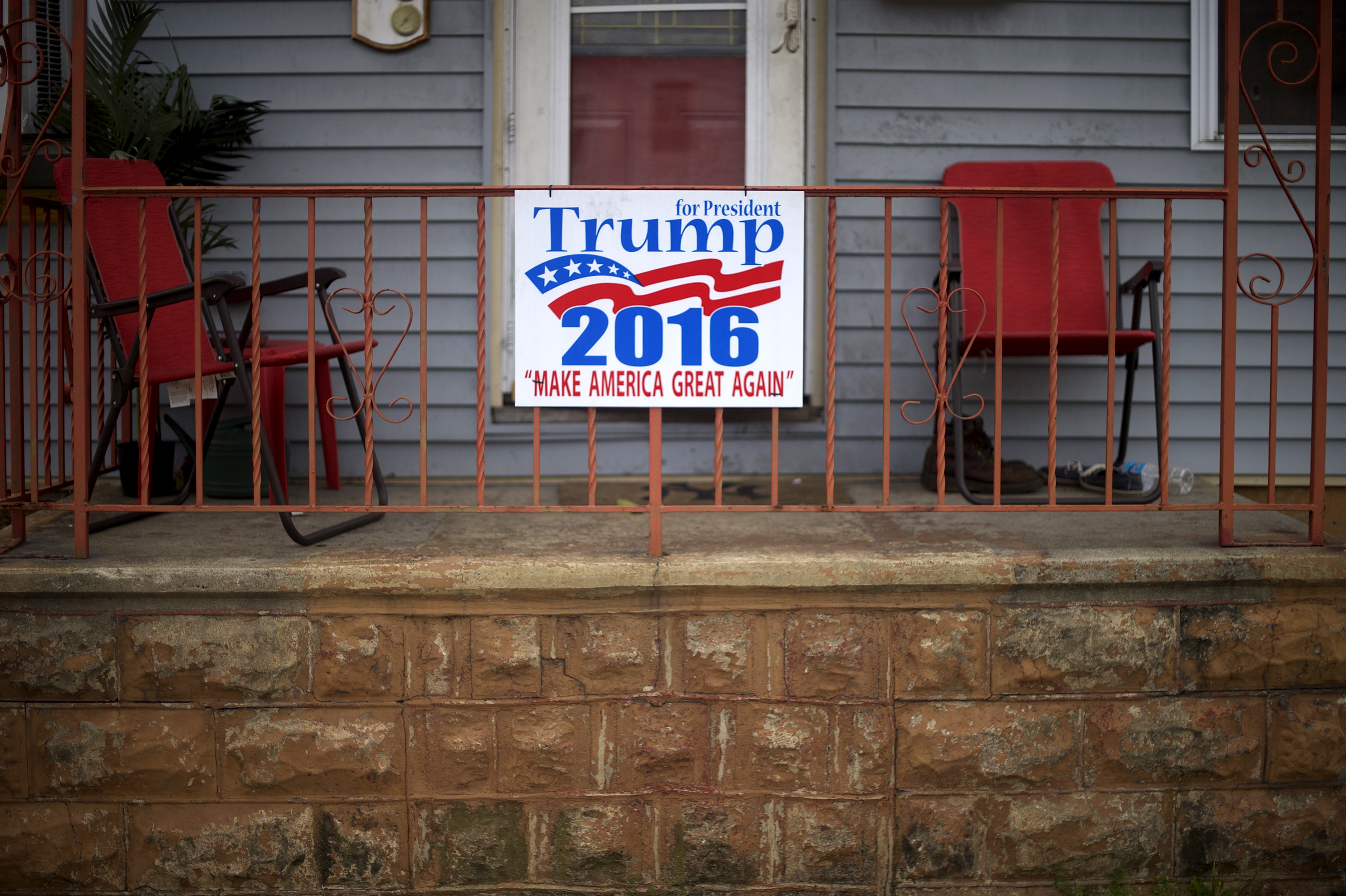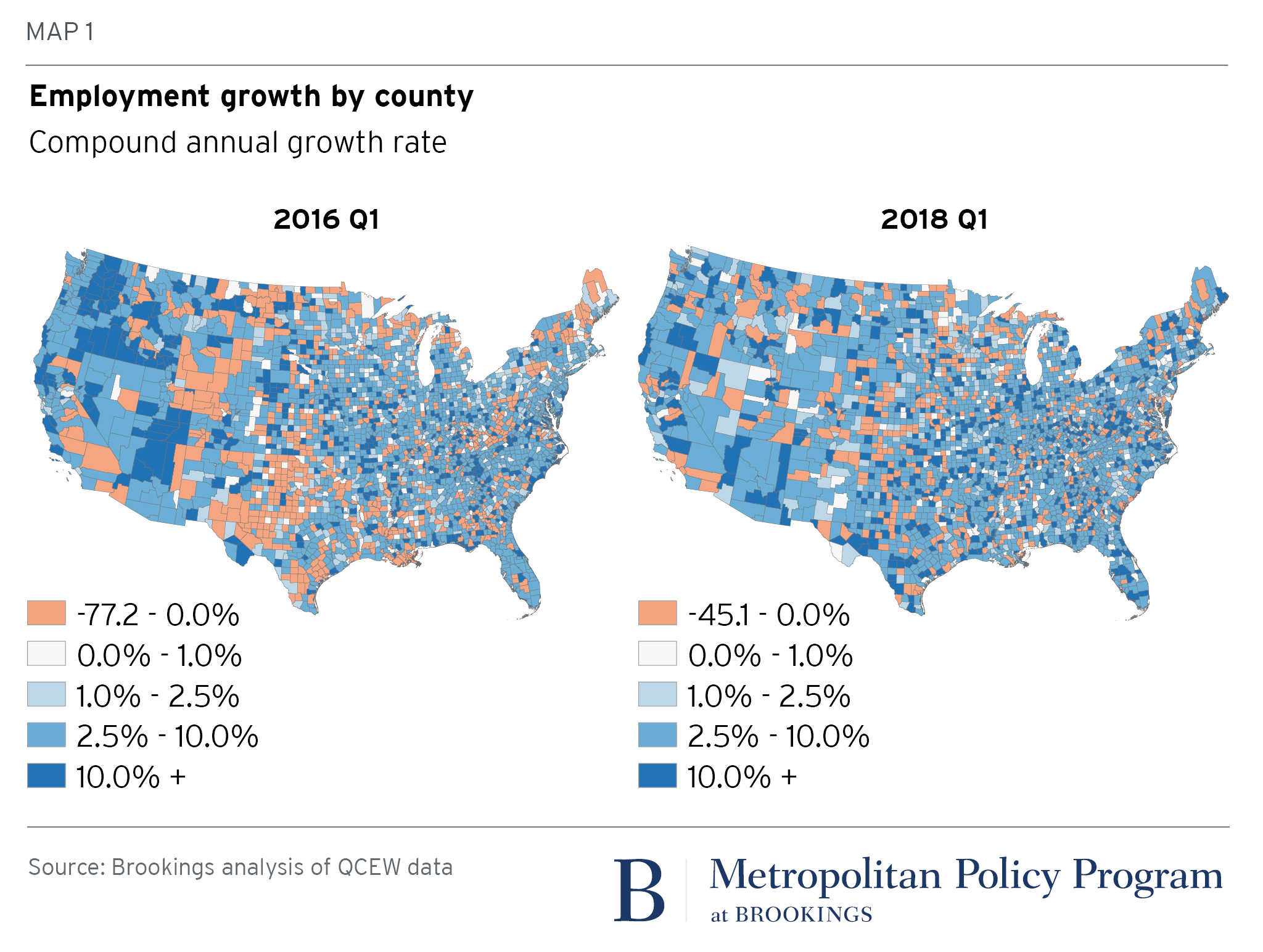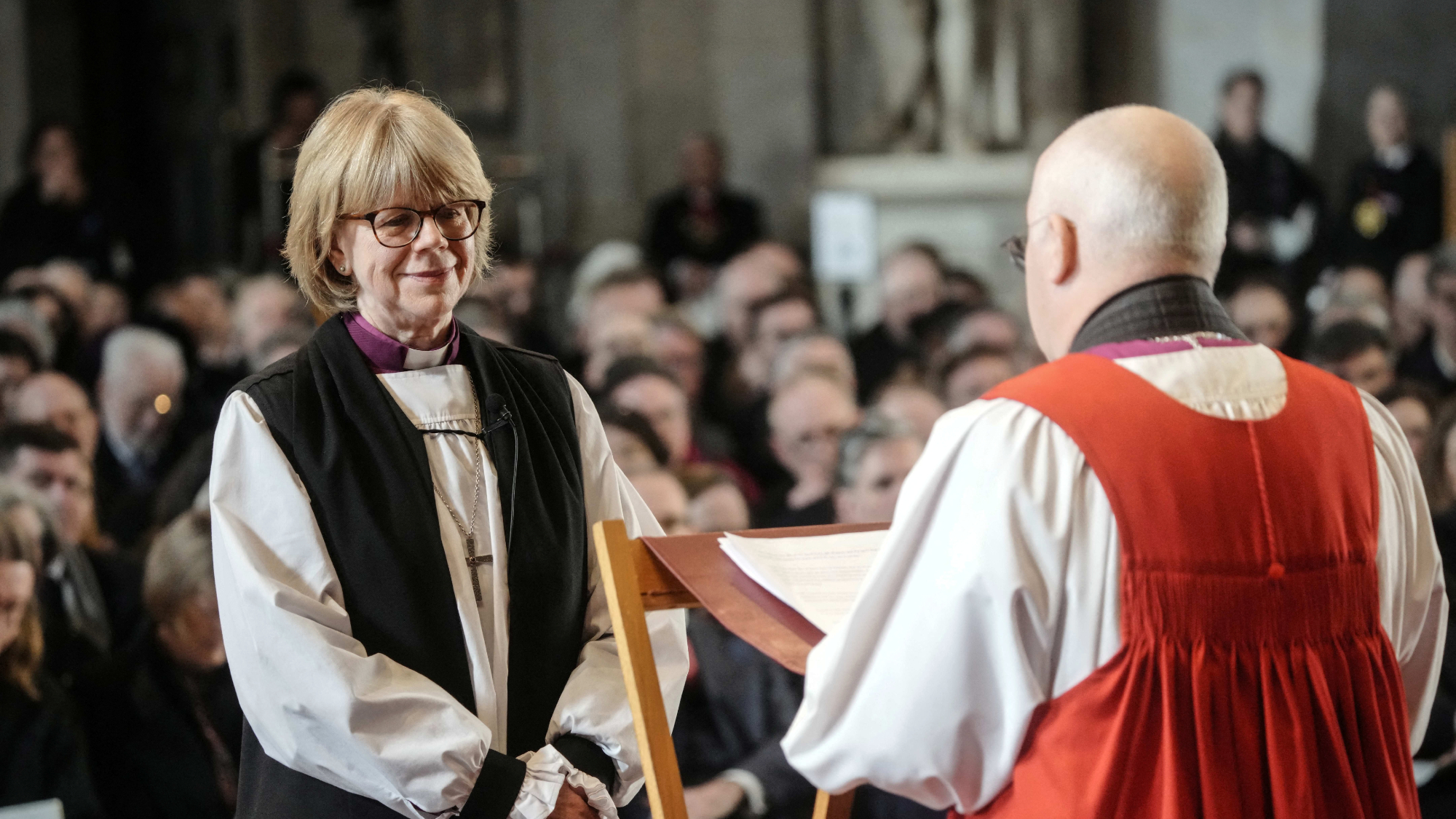Has Trump caused a rural rebound?
Rural America's economy is on the mend. Does the president deserve the credit?


President Trump has staked much of his political appeal on his promise of an economic turnaround for rural America. And he just might be delivering.
Over the last few decades, small towns and rural areas across America have suffered a slow economic death. Their population growth has been declining for years, and went negative after 2010 — driven by the flight of younger Americans. These communities had the slowest rates of recovery after the Great Recession, when the rate of business creation actually went negative.
You can see it, too, in the 2016 election results. Hillary Clinton won big in cities and lost big in more sparsely populated areas. She won far fewer counties than Trump — less than 500 counties compared to his more than 2,600. But her counties generated two-thirds of all income in the economy.
The Week
Escape your echo chamber. Get the facts behind the news, plus analysis from multiple perspectives.

Sign up for The Week's Free Newsletters
From our morning news briefing to a weekly Good News Newsletter, get the best of The Week delivered directly to your inbox.
From our morning news briefing to a weekly Good News Newsletter, get the best of The Week delivered directly to your inbox.
Wealth resides in American cities. Much of the rest of the country is suffering. Is it any wonder these small towns and rural areas went big for Trump?
Line up the one-fifth of U.S. counties that gave Trump the biggest share of their vote next to the one-fifth that gave him the least. The gap in employment growth rates is enormous — over 8 percentage points.
Since Trump's election, the numbers have shifted. Employment in rural America has started growing faster than in the big metropolitan areas.
"Counties that voted for Hillary Clinton in 2016 experienced 4 percent annualized employment growth in the first quarter of 2018, unchanged from the first quarter of 2017," Mark Muro and Jacob Whiton wrote for the Brookings Institution. "Whereas counties that voted for Trump were seeing growth of 5.1 percent a year earlier this year, up from 4.9 percent a year before that and 4.3 percent in early 2016. Many small-town and rural communities may be feeling that things are finally moving in the right direction."
A free daily email with the biggest news stories of the day – and the best features from TheWeek.com
Of course, rates of growth are not the same thing as levels of employment. By a whole host of measures, plenty of rural communities remain in the doldrums. But the speed at which they're improving upon that terrible baseline has picked up noticeably.
Muro and Whiton note that this turnaround was driven by mining and logging (which went from negative 11 percent job growth in 2016 to positive 7.4 percent in 2018), construction (2.8 percent to 3.5 percent), and manufacturing (negative 0.3 percent to 2.4 percent). Those are three of the five industries — fossil fuel extraction and livestock are the others — most heavily concentrated in pro-Trump areas. Most every other sector — including leisure and hospitality, education and health, finance, and information — saw a modest slowdown over the same period.
As you can see in the map Muro and Whiton provided, the number of counties with negative employment growth (designated in orange) decreased from the first quarter of 2016 to the first quarter of 2018. The severity of negative rates in the remaining orange areas also fell.

Muro and Whiton also note that their numbers line up with other analyses.
Now, there are complications to keep in mind. Just as rural communities don't have a monopoly on poverty and economic dislocation, big cities don't have a monopoly on prosperity either. There are plenty of rural communities that were doing fine before Trump, and plenty of impoverished people in big cities.
But assuming that overall, downtrodden rural Americans are seeing an upswing under Trump, how much credit can the president really take?
You could certainly point to Trump's environmental deregulations as a contributor to mining's recovery. But experts also tend to credit cyclical trends and outside forces — particularly a cyclone that knocked Australian coal production back on its heels, giving U.S. producers a market opening. And in the grand scheme of things, the boomlet in mining jobs is a modest uptick on a long decline that has been going since the 1980s.
What about Trump's trade war — did that help? Again, it's complicated. Tariffs on steel certainly benefit steel manufacturers, but they also cost other manufacturers who buy steel. Trump's larger tariff battle with China could be helping, but then China and other nations retaliated with their own tariffs — often specifically designing them to inflict the most pain on pro-Trump industries and areas.
The most likely explanation is probably the most mundane: The recovery has simply gone on long enough to reach rural America. There was a time in the 1990s when rural areas recovered jobs faster than the rest of the country during national economic upswings. It's hard to overstate how much damage both the 2001 recession and the Great Recession did, and the trends shifted in big cities' favor. But after years of grinding away after the 2008 bust, perhaps we're finally returning to the old patterns.
Now, it's all but indisputable that President Trump has done some things to help in this regard. Thus far, he's avoided catering too much to GOP inflation hawks, and has appointed Federal Reserve officials who have continued the Obama era's pace of modest interest rate hikes. Trump's tax cut package last year included at least some relief for workers, and a recent budget deal pumped out $128 billion in new public investment.
Of course, those were largely things Trump did to placate Democrats and critics while pursuing his larger goals of corporate tax relief and military spending. The White House's preferred budget plan would've massively cut public spending outside of defense. But whatever Trump's intentions, those policy changes likely gave the recovery an extra shot of aggregate demand.
If rural America is finally getting its share of the recovery, that's certainly good news. And Trump deserves some credit. But he's also the beneficiary of good timing and circumstance.
Jeff Spross was the economics and business correspondent at TheWeek.com. He was previously a reporter at ThinkProgress.
-
 ‘Implementing strengthened provisions help advance aviation safety’
‘Implementing strengthened provisions help advance aviation safety’Instant Opinion Opinion, comment and editorials of the day
-
 How Manchesterism could change the UK
How Manchesterism could change the UKThe Explainer The idea involves shifting a centralized government to more local powers
-
 Church of England instates first woman leader
Church of England instates first woman leaderSpeed Read Sarah Mullally became the 106th Archbishop of Canterbury
-
 The billionaires’ wealth tax: a catastrophe for California?
The billionaires’ wealth tax: a catastrophe for California?Talking Point Peter Thiel and Larry Page preparing to change state residency
-
 Bari Weiss’ ‘60 Minutes’ scandal is about more than one report
Bari Weiss’ ‘60 Minutes’ scandal is about more than one reportIN THE SPOTLIGHT By blocking an approved segment on a controversial prison holding US deportees in El Salvador, the editor-in-chief of CBS News has become the main story
-
 Has Zohran Mamdani shown the Democrats how to win again?
Has Zohran Mamdani shown the Democrats how to win again?Today’s Big Question New York City mayoral election touted as victory for left-wing populists but moderate centrist wins elsewhere present more complex path for Democratic Party
-
 Millions turn out for anti-Trump ‘No Kings’ rallies
Millions turn out for anti-Trump ‘No Kings’ ralliesSpeed Read An estimated 7 million people participated, 2 million more than at the first ‘No Kings’ protest in June
-
 Ghislaine Maxwell: angling for a Trump pardon
Ghislaine Maxwell: angling for a Trump pardonTalking Point Convicted sex trafficker's testimony could shed new light on president's links to Jeffrey Epstein
-
 The last words and final moments of 40 presidents
The last words and final moments of 40 presidentsThe Explainer Some are eloquent quotes worthy of the holders of the highest office in the nation, and others... aren't
-
 The JFK files: the truth at last?
The JFK files: the truth at last?In The Spotlight More than 64,000 previously classified documents relating the 1963 assassination of John F. Kennedy have been released by the Trump administration
-
 'Seriously, not literally': how should the world take Donald Trump?
'Seriously, not literally': how should the world take Donald Trump?Today's big question White House rhetoric and reality look likely to become increasingly blurred
